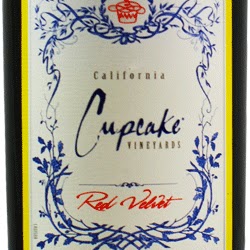Why should you care about the novel as art form? Why do I spend time not only reading and writing novels, but reading and writing about novels? Simple: I believe novels represent some of humankind’s greatest achievements. I believe the novel is the most important of all art forms. I believe the novel has the ability, not to change the world, but to change individual people who inhabit the world.
That said… What is a novel? According to novelist Jane Smiley there are “five small facts that apply to every novel. A novel is (1) lengthy, (2) written, (3) prose, (4) narrative with a (5) protagonist.” This is how Smiley defines the novel in her how-to, literary criticism book 13 Ways of Looking at the Novel. “Every novel has all of these elements,” she writes. “If any of them is missing, the literary form in question is not a novel.”
Smiley continues: “A novel is a hypothesis. A novelist shares with a scientist the wish to observe… But, of course, the novel is a particular type of hypothesis — it is an ontological construct, it is a theory of being.” Here’s another great quote about the novel: “The underlying assertion of almost every novel is that meaning exists and can be understood because it can be arranged in a sequence that then takes on some sort of logic.”
Jane Smiley’s love for this art form pours out of the 500-plus pages in this behemoth. There are more than a few dull pages scattered between the covers, but that’s understandable. The titular 13 Ways are really just 13 chapters, each one focusing on a different aspect of the novel, such as “The Psychology of the Novel” and “Morality and the Novel.” Since the book is so expansive, I’ve chosen a few of Smiley’s claims and arguments to discuss.
Smiley spends quite a few pages discussing the idea of willing suspension of disbelief and how this process affects the novel reader’s experience. “Willing suspension of disbelief is a strange state of mind,” Smiley writes. True so far, but then she continues: “reading nonfiction does not require [willing suspension of disbelief] and neither does reading poetry, since both are based on logical argument.” This I take issue with. I hear a lot of people say that they can’t force themselves to read fiction. They can’t spend their time reading “something someone just made up.” To these people — and to Smiley — I would argue that reading an average news article or nonfiction essay (pick your medium) requires willing suspension of disbelief as much (if not more) than reading an average novel. I don’t believe people really open up the newspaper or go to a news blog, read an article and think, “Yup, that’s exactly how it happened.” Maybe they do, and maybe that’s why we have absolutely no idea what’s going on around us.
When I read an essay or an article in some news outlet, I approach it with a serious sense of skepticism. I hope the author has something worthwhile to say, and I am open to the notion that there is some truth to be gleaned from this writing, but I never assume that a “nonfiction” piece is accurately portraying reality. Nonfiction is not necessarily science. The ultimate goal of a memoir, an essay, and op-ed, is not accuracy. The construction of nonfiction requires collecting certain impressions, memories, ideas and (sometimes) facts and piecing them together in a manner that seems logical. Basically, it’s about making an argument. In this sense, I think nonfiction requires suspending a substantial amount of disbelief. Nonfiction asks the reader to believe what they are reading to be “real,” that the structure of the narrative has some sort of connection to a sequence of actual events. Novels, on the other hand, are works of art. The author of a novel does not make factual, scientifically falsifiable claims. The novelist is telling a story. While discussing Proust, Smiley makes a point that sounds similar to my own: “And, as Proust would have maintained, the construction of memories themselves, and their arrangement into a logical and understandable order, may make them fictional, but also makes them worth reading about.” This is exactly what “nonfiction” does. The only difference is that novels do not demand the pedestal of accuracy, whereas nonfiction writing does.










